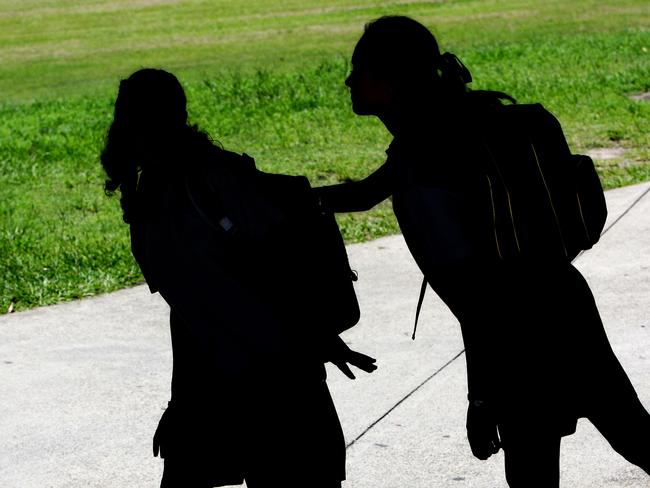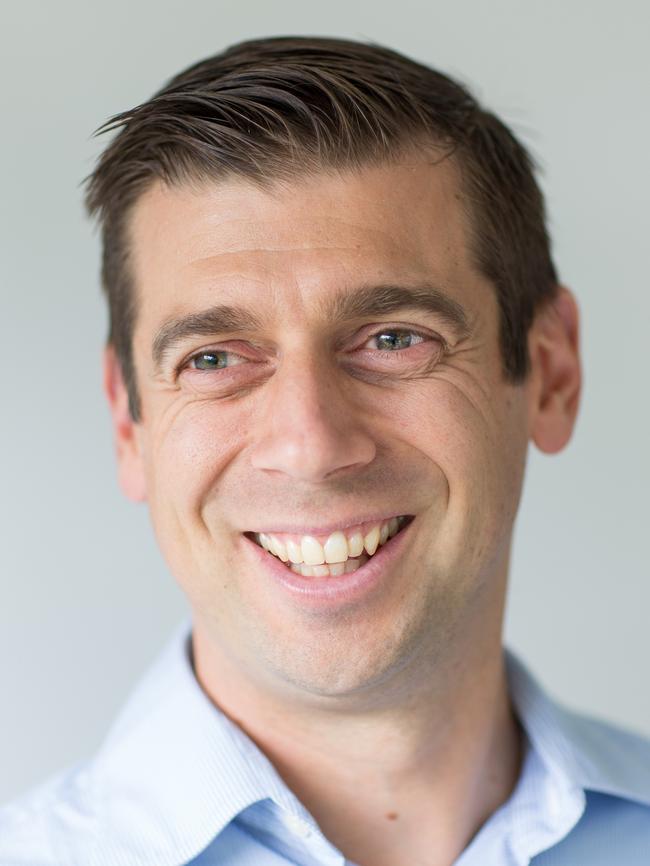Dr Justin Coulson: What to do if your child a bully
FINDING out your child is a bully and is acting horribly to others is painful, but there are things parents can do to help, Australia’s number one parenting writer Dr Justin Coulson reveals.
- Dr Justin Coulson’s advice on leaving children home alone
- Ask Dr Justin: How to get kids to listen without shouting at them
Q WE’RE worried our 10-year-old daughter is a bully. There have been several incidents at school where she has targeted innocent kids, calling them names, making fun of them and even kicking and pushing them. We believe we’ve taught her better than that. We are devastated and feel completely lost.
A Finding out your child is behaving horribly towards others is painful, especially when you have taught her otherwise. When our kids act in challenging ways we often focus on the behaviour, hoping to nip it in the bud. That’s like a gardener attacking the leaves of a difficult tree.
It’s a short-term fix, but it doesn’t address the real problem — the roots of the tree. It takes digging and dirty work to get to the roots. In the same way, addressing just our child’s challenging behaviour won’t fix it. We need to get down to the roots, underneath the surface, to best help our child.

As parents we need to first consider what is going on in our child’s life. Are her home and school life working well? At home, our children need clear limits and to feel accepted and loved. They need attention from us (the good kind!), even when we’re busy.
Most importantly, we need to make sure we are spending good quality time together as a family. To a child, love is spelled T-I-M-E.
At school, our children need to feel safe. They need to have friends, and to feel they can keep up with class work (or can get help if they need it). Outside school, they need hobbies, sports or other interests, of their choosing.

They need to have places to go where they feel competent and where they can develop safe and positive relationships. And they need to feel that they have some choice and volition in their lives.
Researchers have discovered most bullying prevention techniques don’t work. But there are some things we can do that don’t usually crop up in the anti-bullying programs.
The best way to do reduce bullying behaviour is to teach our children how to empathise with others. But in order to empathise with others, kids need to develop strong emotional intelligence.
They need to be able to understand how they feel and develop the skills to regulate their own big emotions. Then they can begin to understand how others feel, and identify the right way to act.
This is a complicated process, but one extremely helpful in getting to the root of the problem. But we also need a strategy that tackles the problem immediately.
I’d suggest this five-step process: First, engage your child in a gentle way. If you are upset, take some time to compose yourself and ask your child to do the same. We don’t parent effectively when we’re upset, and our children don’t listen well when they’re upset. And when we are gentle and understanding, we model the behaviour we are asking for.
Second, give your child credit where you can. This is not about making excuses for them! But when we appreciate good intentions and sincere striving, we can understand our child’s point of view and guide them more effectively: “You just wanted to play with one friend without being interrupted.”

Third, draw attention to the victim’s distress: “When you told your friend to go away, she felt sad.”
This helps our child to feel what others are feeling. Our aim here is to train our children’s hearts. This is delicate work! Heart surgery can’t be done with sledgehammers.
Fourth, we build emotional intelligence and empathy by asking her to see the victim’s point of view and to take on her perspective: “I think your friend just wanted to be with you.”
Steps three and four focus on the heart (distress of the victim) and the mind (the victim’s perspective). The heart and mind working together are very powerful tools.
Fifth, once your child feels understood (and is calm), help her think of ways to make amends: “How could we help your classmate feel included without ruining your game?” When your child is calm and her heart is right, she will be more creative and empathetic.
This process will take time. Parenting in these challenging situations is not quick or convenient. It is a large and continuing sacrifice. It may take several rounds of the five-steps before your child is ready to show compassion to others.
But ultimately you will have empowered her to develop useful and positive strategies for coping with challenges.
